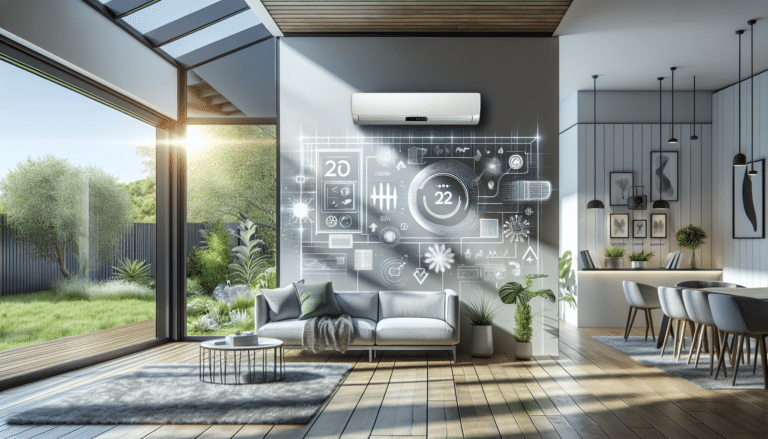Introduction to Split Air Conditioning Services
Split air conditioning systems have gained immense popularity in recent years due to their efficiency and versatility. Whether for residential or commercial applications, these ductless systems offer a variety of benefits that enhance comfort while ensuring energy efficiency. Understanding the essentials of air conditioner installation, routine maintenance, and troubleshooting common issues can significantly improve the longevity and performance of your unit.
Understanding Split Air Conditioners for Homes
Split air conditioners consist of two main components: an indoor unit, known as the air handler, and an outdoor unit that houses the compressor and condenser. This separation allows for quieter operation compared to traditional systems. When seeking to choose the right air conditioner unit, consider the size of the indoor and outdoor units to match your home’s specific cooling requirements. Incorrect sizing can lead to inefficiency, resulting in increased energy bills and reduced comfort.
Benefits of Ductless Air Conditioning
Ductless air conditioning systems, or mini-splits, come with numerous advantages. Firstly, they are notably easier to install than traditional systems since they do not require ductwork. This makes them an excellent choice for homes without existing ducts or those looking for a cost-effective solution to improve their heating and cooling systems. Moreover, mini-split air conditioners generally provide enhanced energy efficiency ratings, making them a sustainable option for environmentally conscious consumers.

Additionally, the flexibility of installing multiple indoor units connected to a single outdoor unit allows for zoned comfort throughout your home. This capability enables you to control the temperature in each room individually, minimizing energy consumption and optimizing comfort.
Air Conditioner Services: Energy Efficiency and Longevity
Ensuring your split air conditioning system’s energy efficiency and longevity involves regular maintenance and timely repairs. Knowing how to improve air conditioner efficiency can prevent minor issues from escalating into costly repairs. Regularly cleaning or replacing filters, checking refrigerant levels, and inspecting electrical connections are key components of air conditioning system maintenance tips. Keeping your outdoor unit free of debris and ensuring adequate airflow will also contribute to its overall performance.
In the unfortunate event that your unit experiences malfunction, having an air conditioner repairs guide at hand can streamline the troubleshooting process. Common air conditioning problems include refrigerant leaks, compressor failure, and blown fuses, and recognizing these early can save you time and money. If the required repairs feel daunting, seeking professional help ensures that the issues are addressed correctly and safely.
Commercial Air Conditioning Services Maintenance
For business owners, maintaining optimal indoor climate is equally crucial. Commercial air conditioning services require specialized knowledge and adherence to best practices to ensure comfort for employees and customers alike. Regular maintenance for commercial units includes inspection of ductwork alternatives that are often required for larger spaces. Scheduling routine maintenance checks can help spot potential problems before they affect the operation of the air conditioning system.
Understanding air conditioning energy ratings explained can also inform purchasing decisions for new systems, ensuring businesses invest in models that complement their energy needs and budget. Choosing an energy-efficient air conditioning model reduces operational costs and contributes positively to the environment.
Air Conditioner Installation Essentials
When planning air conditioner installation, it is essential to have a comprehensive understanding of the associated costs. An overview of air conditioner installation costs includes consideration of unit price, additional materials, and labor expenses. This planning phase is critical for both residential and commercial installations. Furthermore, a mini-split air conditioner installation guide can provide step-by-step insight into the installation process, making it accessible even for those considering a DIY approach.
An essential part of installation involves selecting the right air conditioner unit size. Oversized or undersized systems can lead to inefficiencies and increased energy cost. For best results, a professional HVAC technician should perform a heat load calculation to determine the appropriate unit size for your space.
Air Conditioning Repairs: A Call to Action for Professional Help
While DIY repairs might seem appealing, HVAC system maintenance repair often requires specialized knowledge. Engaging professionals for air conditioning repairs ensures the safety and efficacy of your unit. A common misconception is that minor repairs can be handled independently; however, seeking air conditioner service energy efficiency longevity requires experienced hands to tackle potential complications.
Air conditioner customer reviews ratings can serve as a valuable resource for selecting reputable service providers. Reading testimonials and experiences from other customers provides insight into the quality of service and reliability of technicians available in your area.
Final Considerations: Preparing for Hot Weather
As summer approaches, adhering to air conditioner summer readiness tips is vital. Before the heat arrives, schedule a maintenance check to clean your system, check refrigerant levels, and ensure everything is in top working order. A proactive approach will enhance your system performance and extend its lifespan.
Understanding the pros and cons of ductless air conditioning allows you to make informed decisions about your cooling needs. While the initial investment in mini-split air conditioners may be higher than traditional units, their energy efficiency often results in lower operational costs over time.
In conclusion, leveraging the benefits of split air conditioning systems through diligent installation, regular maintenance, and timely repairs can provide a comfortable and efficient indoor climate. By understanding the intricacies of air conditioning and committing to best practices, homeowners and businesses alike can ensure their systems operate at peak performance for years to come.
